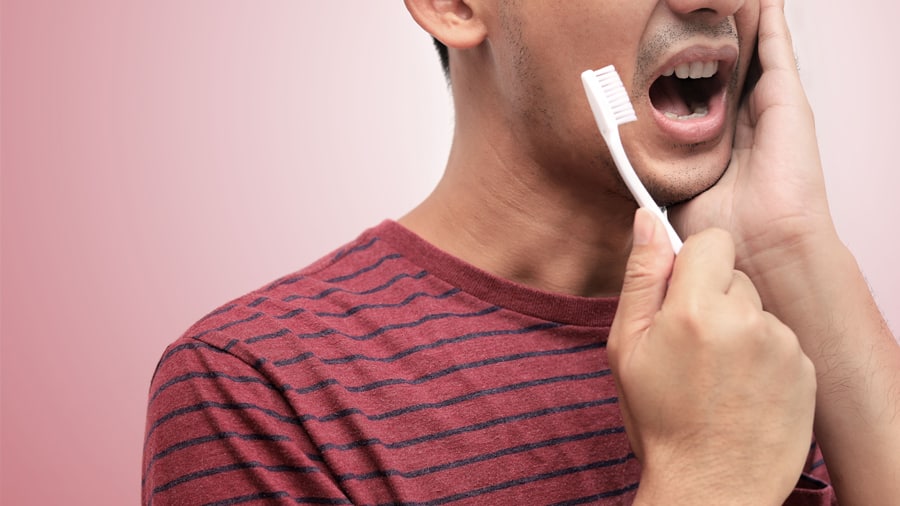Good Home Care from Day One
A good home care routine starts the day you bring your baby home from the hospital. Using a moist gauze pad or washcloth, gently clean your baby's gums after feedings. Once teeth appear, you can clean them with a soft baby brush and water. As your child grows, so will his toothbrush size, but don't be too quick to let him brush on his own. Children are not coordinated enough to clean their teeth thoroughly until they are about eight to ten years old.
Floss your child's teeth once a day, and keep in mind that, as your child gets older and brushes and flosses by himself, he may still need reminders and monitoring to ensure that he is doing a good job. .
Dental Visits Start Early
The Indian Dental Association recommends to schedule your child's first dental visit by the age of 1 or after the first tooth erupts. This allows your child to get used to the dental office, and your dentist can check the growth and development of the teeth. This is a good time for you to ask questions about teething, fluorides, home care, dummies and thumb-sucking. Scheduling regular dental visits throughout your child's life is extremely important in preventing dental problems.
Fight Acid Attacks with Healthy Snacks
According to the Indian Dental Association, eating starchy foods such as crackers, bread, biscuits and sweets causes the bacteria in your mouth to feed on it, they then produce acids, which attack your teeth for up to 20 minutes or more. These acids are produced for approximately 20 minutes after eating and are responsible for dissolving tooth enamel and causing cavities in children.
To prevent baby bottle tooth decay, avoid putting any sugary drinks in the baby bottle, limiting the contents to formula, milk and water. In addition, it is best not to put your baby to bed with a bottle containing anything other than water since the sugars in formula and milk can damage his teeth while sleeping.
Give your child healthy foods with lots of proteins, calcium and phosphorus to develop strong teeth. To prevent decay, limit snacking, and replace sugary snacks with healthy versions, such as fruits, vegetables, peanut butter, yogurt and cheese.
Fluoride Makes Strong Teeth
The Indian Dental Association explains that fluoride is a mineral that is best known for its role in making teeth more resistant to decay. It also helps repair the tooth in the early stages of decay. There are many sources of fluoride: Community water supplies, fluoride toothpastes, rinses and gels, fluoride supplements and fluoride treatments in the dental office. But before you give your child any type of fluoride, ask your dentist or paediatrician for a recommendation.
Sealants: Protective Raincoats for Teeth
The chewing surfaces of a child's back teeth often have very deep grooves where food and bacteria can hide and cavities can start. The Indian Dental Association suggests you to ask your dentist if a dental sealant is appropriate for you. Dental sealants are a thin, plastic coating that are painted on the chewing surfaces of teeth to protect them from cavities and decay. Sealants hold up well and can last several years before needing to be replaced.
If you want to protect your child's teeth from decay, diligently adhere to these five basic preventive strategies. There's no denying that the payoff will be well worth the effort: You will have a child with a prize-winning smile that is cavity-free.
This article is intended to promote understanding of and knowledge about general oral health topics. It is not intended to be a substitute for professional advice, diagnosis or treatment. Always seek the advice of your dentist or other qualified healthcare provider with any questions you may have regarding a medical condition or treatment.
ORAL HEALTH QUIZ
What's behind your smile?
Take our Oral Health assessment to get the most from your oral care routine
ORAL HEALTH QUIZ
What's behind your smile?
Take our Oral Health assessment to get the most from your oral care routine













